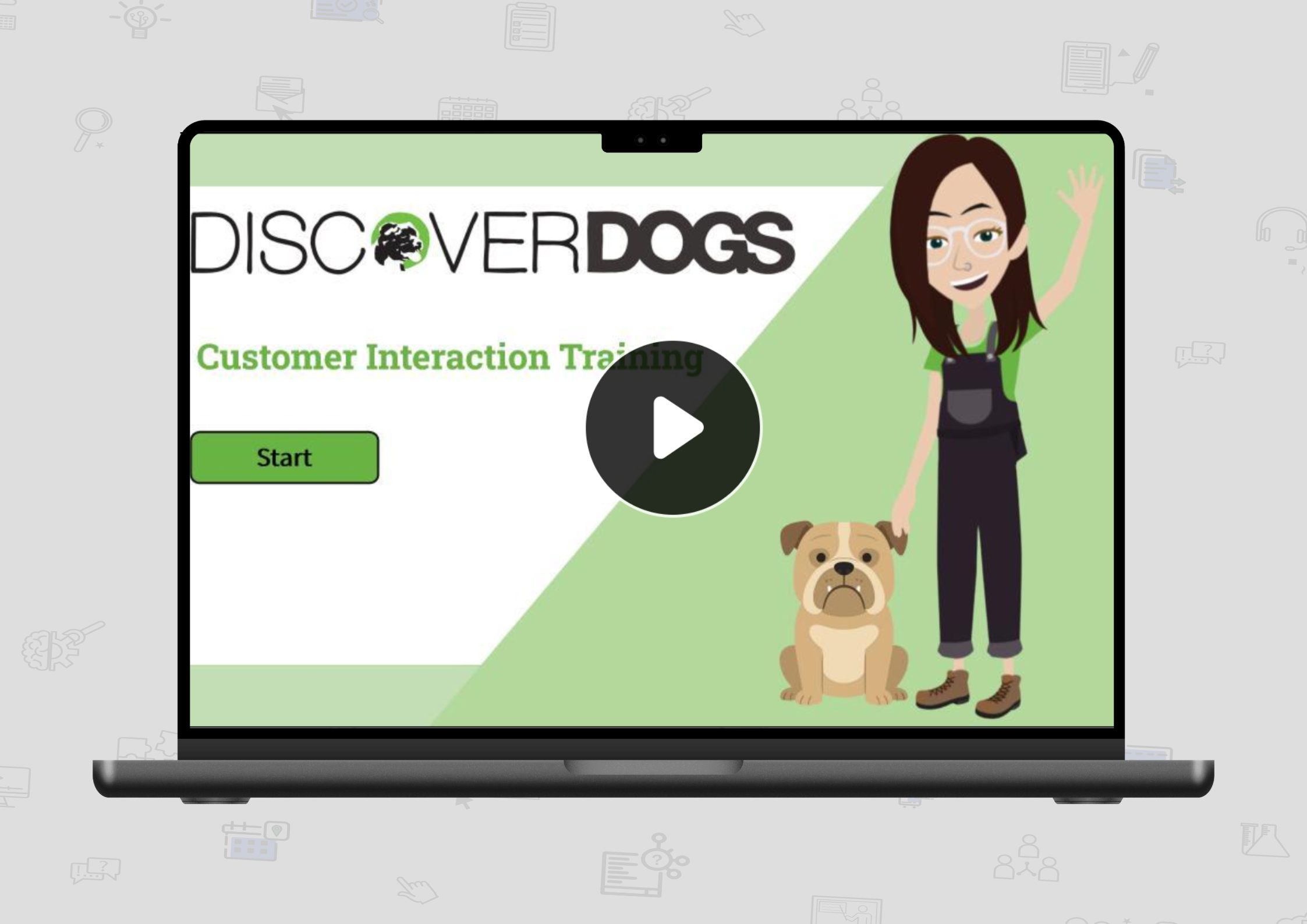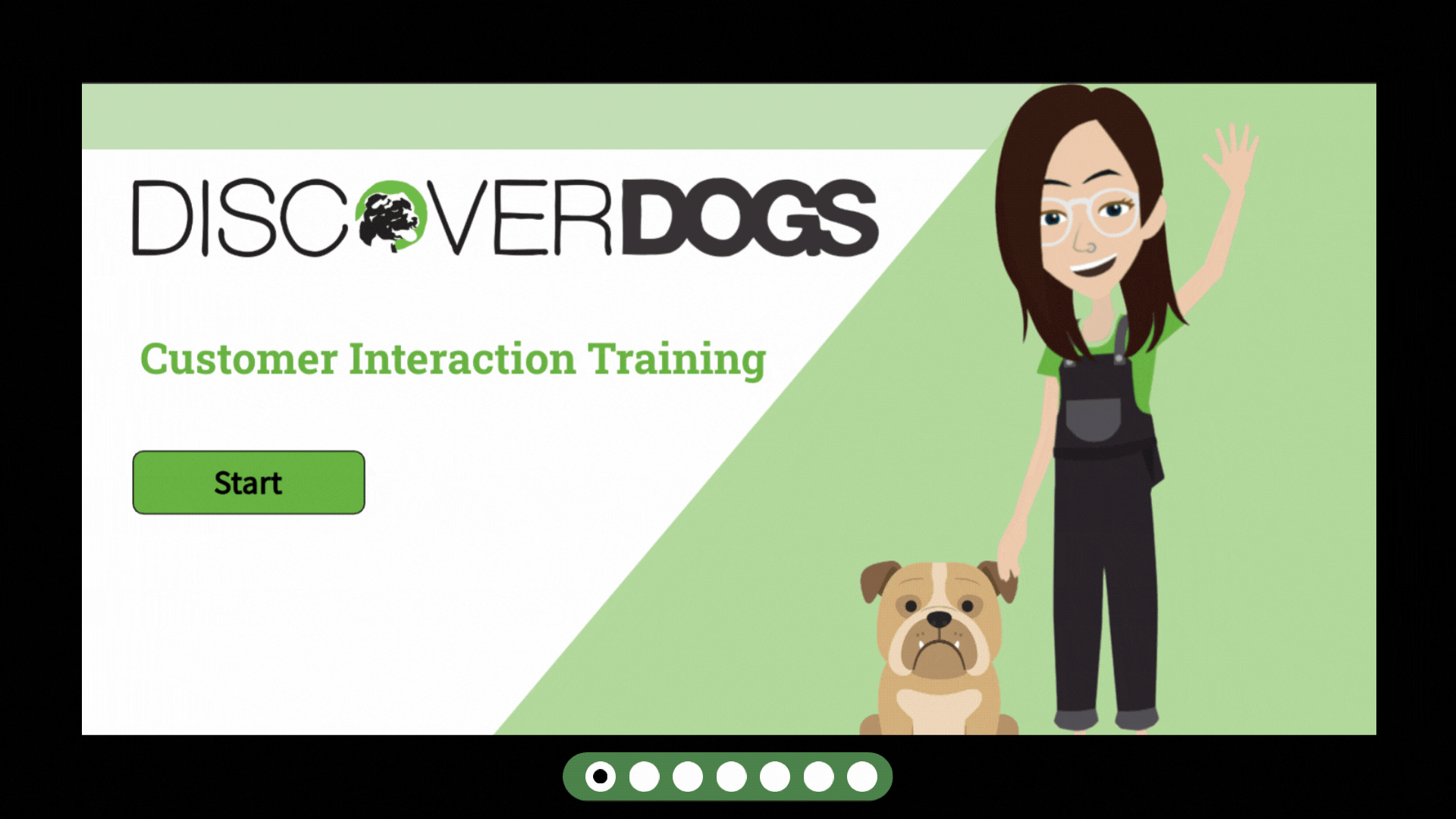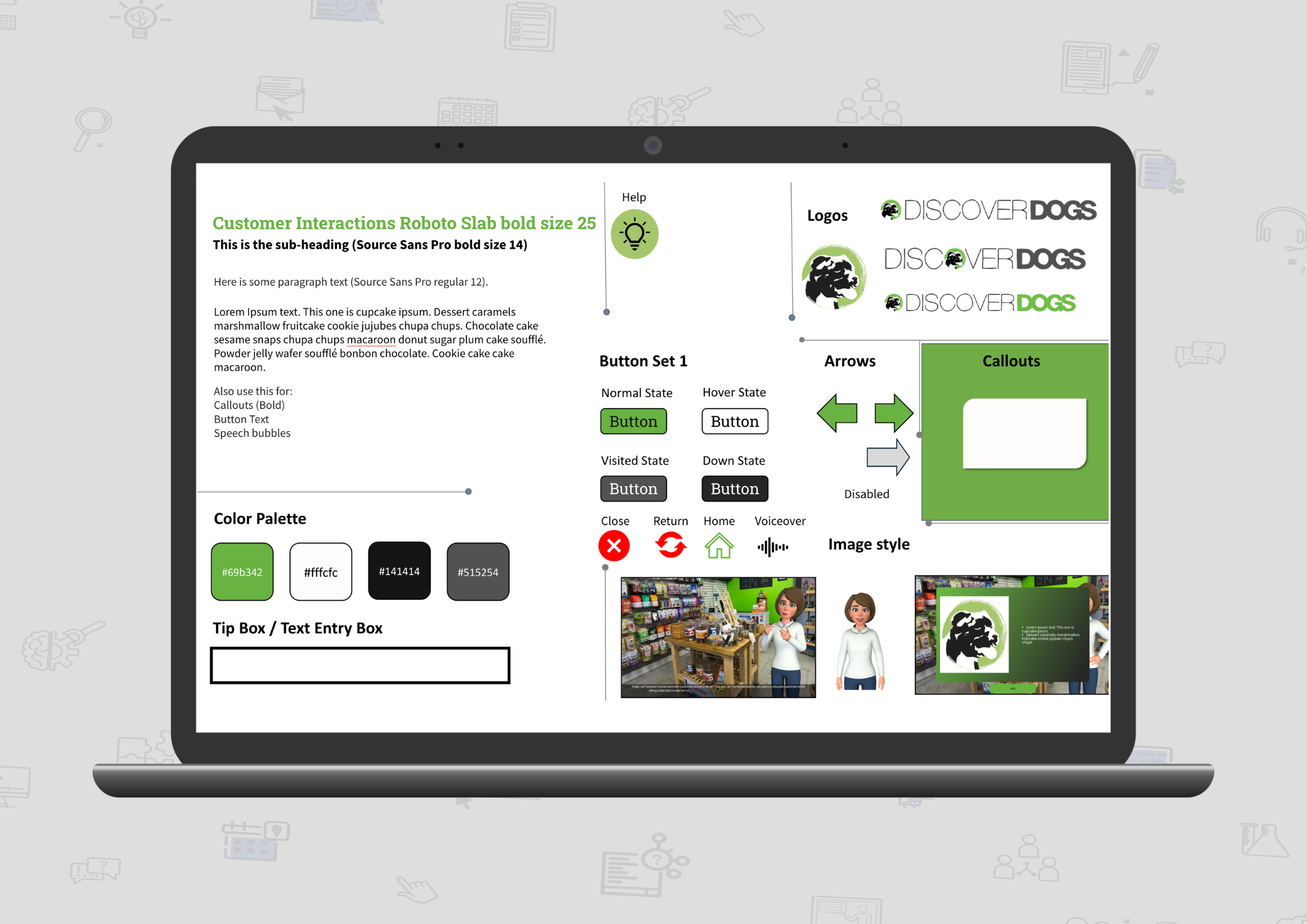Featured Project
Discover Dogs - Customer Interaction Training
Project Title:
Discover Dogs Customer Interaction Training
Role:
Instructional Designer, eLearning Developer, Project Leader
Tools used in Development:
Vyond, Logic Pro X, Storyline, Eleven Labs Voice Studio, Canva, Final Cut Pro, Microsoft Word, PPT, Google Docs, Trello
Time in Development: 3 months
Client: Discover Dogs
Executive Summary
This project addressed the need for a more structured and efficient customer interaction training program at Discover Dogs. The existing approach relied heavily on informal learning through observation and peer conversations, which led to inconsistent service and prolonged training periods. To improve efficiency and uphold the company’s customer-centric values, a scenario-based eLearning module was developed. The training equips new employees with the skills and confidence to engage customers effectively from the start.
Challenge
The existing induction programme at Discover Dogs spanned two weeks. However, analysis of training materials and feedback from participant surveys revealed a significant gap: customer interaction was not a core focus. Instead, new staff were expected to develop these skills through observation and on-the-job exposure. This informal approach extended the time it took for employees to become independent on the shop floor and created a dependency on senior staff for up to 2–3 months per new hire. The lack of structure led to inconsistent understanding and application of the company’s customer-centric approach. It also delayed the development of essential skills, postponing eligibility for higher pay linked to full independence. To address these issues and improve training efficiency, Discover Dogs aimed to introduce a more structured and targeted approach; one that would build staff confidence and competence in customer interactions more quickly. This initiative supports the company’s broader goal of standing out in a competitive market by offering expert, customer-focused service.
Solution
To address the gaps in customer interaction training, I designed a scenario-based eLearning module grounded in Meryl’s First Principles and built around a task-centred approach. Working closely with a subject matter expert, we developed a series of realistic customer scenarios with branching consequences to reflect common challenges staff face on the shop floor. Early iterations included broader themes such as Discover Dogs’ values, customer interaction process, and product knowledge. However, through iterative testing, it became clear these needed to be condensed to avoid overload. Instead, the design shifted focus to service-specific variables like customer needs, emotional state, limitations, and readiness for change—areas that had a greater impact on learner decision-making. The final solution combined animated cutscenes, structured interaction tasks, and a built-in feedback loop to guide learners through best practices. To reinforce application, the eLearning is followed by real-world role play assessments, giving staff the chance to practise, reflect, and build confidence in a controlled setting before going solo on the shop floor.
Results
The new customer interaction training has already received positive learner feedback, with staff describing the eLearning as easy to navigate, practical, and helpful to revisit on the job. Learners have reported greater confidence in representing the mission, vision, and values of Discover Dogs while using the interactive process introduced in the training. Success will continue to be measured through completion rates and a final in-store assessment, with a target of 90% achieving a passing score. From a development perspective, this project strengthened my ability to design clear, collaborative assets when working with international clients. It also reinforced the importance of balancing transparent communication with efficiency—particularly when the SME is also the business owner.







